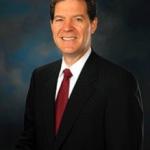Over at Commonweal magazine’s website, my friend John Gehring expresses concern that, although the archbishop is correct that both candidates are flawed, he creates a problematic and false equivalency:
The archbishop is correct that our political system is broken. Both candidates and parties have obvious flaws. Anyone with eyes to see knows this. It’s not exactly breaking news. In most elections, the archbishop’s pox-on-both-your houses critique would attract hardly a glance.
This is not a normal election year.
Donald Trump’s toxic candidacy is sui generis, a grave threat to basic democratic norms and ideals, Christian values, and the common good. In this context, the archbishop’s astonishing false equivalency is irresponsible and even morally dangerous. Both Trump and Clinton, he insists, are “so problematic that neither candidate is clearly better than the other.”
In at least one way, His Most Reverend Excellency creates an equivalency that is objectively false. He is concerned that Trump and Clinton are both so wealthy they are out of touch with the average person. But he also notes that Trump’s net worth exceeds Clinton’s by a factor of at least 10. It seems reasonable to argue that, while Mrs. Clinton is indeed wealthy, she has dedicated much of her life to public service and is probably more in touch with ordinary people’s concerns than the billionaire showman who spent his entire life in search of fortune and attention.
I probably wouldn’t call Chaput’s comments morally dangerous. He is a pastor, after all, not a trained political thinker. To his credit, the archbishop separates his political musings from his authoritative position in the very first breath: “My column this week is a collection of personal comments. Read it as thoughts from a brother in the faith, not as teachings from an archbishop.”
But John is certainly right to point out that, however problematic Clinton is (and this is a matter of great debate), Trump is qualitatively different. He disregards long-established norms of political behavior and discourse. It is difficult to even compare him to his 2016 GOP rivals or past Republican nominees, let alone to his Democratic opponent.
John is probably concerned that Archbishop Chaput is telling Philadelphia Catholics that, in effect, a vote for either candidate is okay. After all, “Neither is clearly better than the other.” This may soothe the consciences of a few Trump-voting Catholics who want to think of themselves as honoring the Church’s social teaching at the ballot box. (I’m not sure that “faith voters” are applying their faith to politics nearly as seriously as they think they are by casting a vote in an election.)
And while Democratic voters will hear Archbishop Chaput as saying a vote for Trump is morally defensible, is he not also saying that a vote for Clinton is okay? And if he is, is this not a meaningful concession from a bishop well-known for prioritizing the criminalization of abortion over other political priorities?
Read John Gerhing’s piece at Commonweal.












